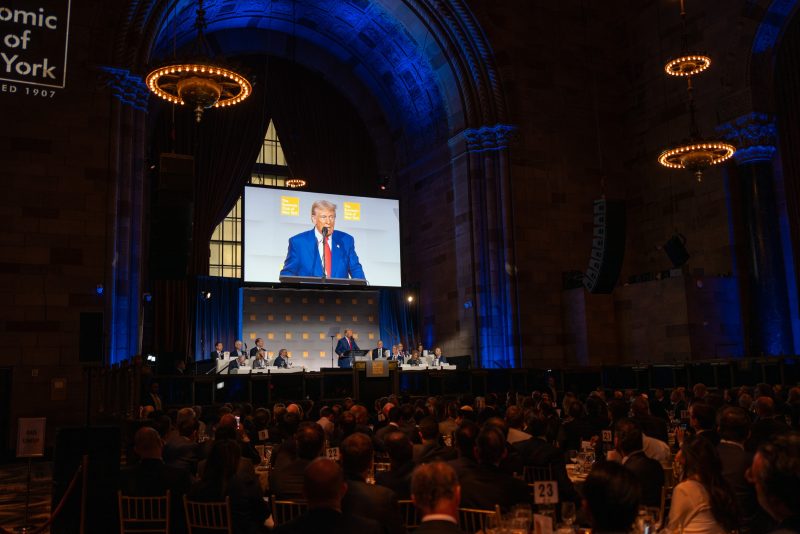In recent developments, the GOP has come under scrutiny for downplaying the increasingly extreme threats to global trade posed by former President Donald Trump. Despite Trump’s rhetoric surrounding trade policies, which has been known to instigate volatility in international markets, GOP members have been hesitant to address the severity of these issues head-on, choosing instead to minimize the impact of Trump’s statements on global trade agreements.
Trump’s unorthodox approach to trade policies during his time in office often elicited strong reactions from both domestic and foreign leaders. His use of tariffs as a negotiating tactic and his tendency to make sudden and unpredictable decisions regarding trade agreements created a sense of unpredictability in the global economic landscape. While some viewed Trump’s tactics as a way to protect American industries and workers, others criticized them for their potential to disrupt established trade relationships and damage international cooperation.
Despite the controversial nature of Trump’s trade policies, the GOP has largely refrained from openly acknowledging the potential harm caused by his actions. Instead, many party members have chosen to focus on the positive aspects of Trump’s economic agenda, such as job creation and economic growth. This approach, however, fails to address the real and tangible impact that Trump’s trade policies have had on global trade dynamics.
One key issue that has emerged from Trump’s approach to trade is the erosion of trust and reliability in the United States as a trading partner. By engaging in trade wars and using unilateral tariffs as a tool for negotiations, Trump placed the US in a position of confrontation with many of its traditional allies and trading partners. These actions not only strained diplomatic relationships but also created uncertainty for businesses and investors who rely on stable trade conditions to operate successfully.
Moreover, the lack of a coherent and consistent trade policy from the US has added to the uncertainty in global markets, leading to increased volatility and potential disruptions in supply chains. Trump’s tendency to make abrupt decisions without consulting key stakeholders or considering the long-term consequences has further exacerbated these challenges, creating a sense of unease among those involved in international trade.
It is imperative for the GOP and other policymakers to recognize the gravity of the situation and take proactive steps to address the negative impact of Trump’s trade policies on global trade. By engaging in constructive dialogue with partners and stakeholders, the US can work towards rebuilding trust and stability in international trade relations. Additionally, developing a clear and transparent trade policy that prioritizes collaboration and mutual benefit will be essential in promoting sustainable economic growth and prosperity in the global market.
In conclusion, the GOP’s tendency to downplay the increasingly extreme threats to global trade posed by Trump’s trade policies is shortsighted and detrimental to the long-term interests of the US and its allies. It is crucial for policymakers to confront these challenges head-on and work towards creating a more stable and predictable trade environment that benefits all parties involved. Failure to do so risks further destabilization of global trade dynamics and could have lasting repercussions for the global economy.






























